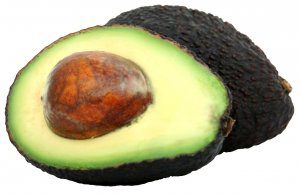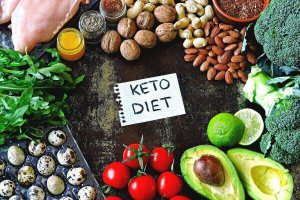Keto Diet Side Effects. Does Keto Have Any?
Table of Contents
Keto Diet Side Effects
Keto is growing in popularity, and it’s not surprising why. The keto diet promises to:
- Help you lose weight.
- Control your blood sugar.
- Lower blood pressure.
- Improve cholesterol.
- And much more.
With research backing these claims, it’s no wonder why people are hopping on the keto trend, but does it have side effects? Before we look into any potential side effects of the keto diet, let’s take a quick overview of it so you can understand any side effects.
An Overview Of Keto Diet
Those who follow the keto diet want the health benefits from weight loss to improved blood sugar. There are different types of keto diets. Some follow a strict keto diet of low carbs, while others allocate carbs around their workouts. The standard keto, where people try to limit their carbohydrate intake to around 50 grams a day, is the most common version.
However, this doesn’t mean you should only consume protein. The world isn’t as black and white where only carbs or proteins exist. Therefore, it would be best if you also increase your fat intake.
Fat used to be heavily stigmatized to the point where people actively avoided it. They believed avoiding fat was healthy. However, fat is part of a well-balanced diet and something your body needs to survive, regardless if you’re following the keto diet or not. You don’t need to consume as much fat if you’re not on the keto diet, but you’ll need to increase your fat intake if you are following the keto diet.
If you don’t increase your fat consumption when you’re following the keto diet, you run the risk of kicking yourself out of ketosis. However, this doesn’t mean you should eat any fats. You still need to take into account your cholesterol and blood pressure with unhealthy fats. That’s why it’s essential to consume only healthy fats, from healthy oils to avocado.
 If you’re not sure which fat to start with, you can always go the safe route with high-fat proteins such as chicken (with the skin on), turkey, or sausage. Grass-fed butter, olive oil, and avocados are also safe fats you can use to increase your fat intake.
If you’re not sure which fat to start with, you can always go the safe route with high-fat proteins such as chicken (with the skin on), turkey, or sausage. Grass-fed butter, olive oil, and avocados are also safe fats you can use to increase your fat intake.
You need to maintain a healthy fat intake when you’re on keto, so you don’t risk taking yourself out of ketosis. In order to better understand ketosis, we need to look at what happens to our bodies when following the keto diet.
What Happens To Your Body When Following The Keto Diet?

Remember, carbohydrates are the body’s primary source of energy. So when you don’t have enough carbohydrate intake, your body must turn to another source of energy. That’s when the body turns to fat instead. When your body turns to fat for energy, it creates ketones that it uses for fuel.
When you’re following keto, you are cutting down on your carbohydrate intake. That means your body goes into a state of ketosis where it must rely on fat as fuel. That’s why you need to increase your fat intake to follow the keto diet successfully.
While the keto diet has plenty of benefits, from helping prevent or control diabetes to lowering the risk of nervous system diseases such as Alzheimer’s, there are some side effects you need to look out for when following the keto diet.
Fatigue as Keto Diet Side Effect
One of the people’s main complaints when following the keto diet is fatigue. It isn’t general sleepiness; it’s the feeling of lethargy or lack of energy throughout the day. Fatigue is a very common side effect of the keto diet. Many stop doing the keto diet entirely because they believe they’re not doing it right because of the lack of energy.
One of the best ways to counter the side effect of fatigue with the keto diet is to consume more fat. If you’re depriving your body of carbohydrates, then your body must turn to fat for fuel. However, if you’re not consuming enough fat, where will your body turn for energy? You’ll end up feeling fatigued.
Brain Fog
Brain fog is similar to fatigue, except it’s mental. Keto is known to cause brain fog in those following a low-carb diet. Think of brain fog as difficulty concentrating, retaining memory, or the general hazy feeling in your brain. Many believe this brain fog is only caused by the withdrawal of carbohydrates and should only last for a couple of days.
However, if you feel your brain fog is lasting longer, then you should make sure you’re drinking plenty of water, eating enough calories, and consuming enough fat. You’ll also want to check your level of ketones to ensure you’re in ketosis. If not, you’ll need to make adjustments to your keto approach, so your body achieves a state of ketosis.
Difficulty Sleeping due to Keto Diet
Believe it or not, there is such a thing as keto insomnia. This could be detrimental to your weight loss goals because you need sleep in order to lose weight. Therefore, not getting enough sleep is linked to increased weight gain instead of weight loss. Unfortunately, many complain of “keto insomnia” when on the keto diet.
You’ll want to make sure you’re not suffering from other issues that could be causing insomnia instead of keto.
- Could it be the side effects of medications?
- Are you taking caffeine or other supplements?
- Are you consuming alcohol?
- Are you suffering from any mental or physical illnesses?
 If your insomnia isn’t caused by anything else other than your keto diet, then you might want to adjust your approach to ketosis. For example, you might be consuming too many healthy fats that are causing an overload of energy. On the other hand, your body might also just be adjusting to ketosis.
If your insomnia isn’t caused by anything else other than your keto diet, then you might want to adjust your approach to ketosis. For example, you might be consuming too many healthy fats that are causing an overload of energy. On the other hand, your body might also just be adjusting to ketosis.
Just because you’re suffering from the side effects of keto doesn’t mean you should give up on keto. However, if you feel this is the proper diet for you but can’t handle the side effects, talk to your doctor about how you can adjust your approach to keto so you can make this diet work for you as successful as it has many others.


